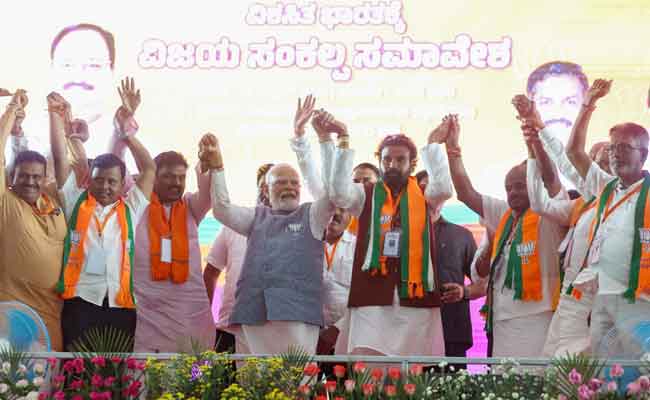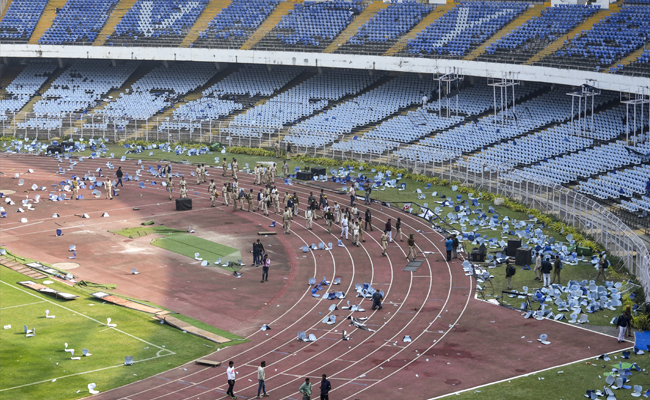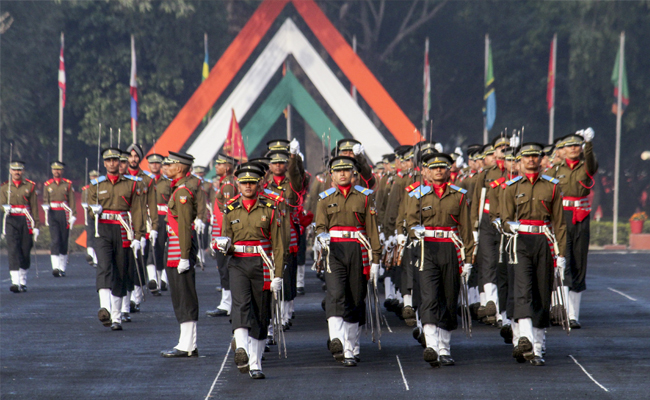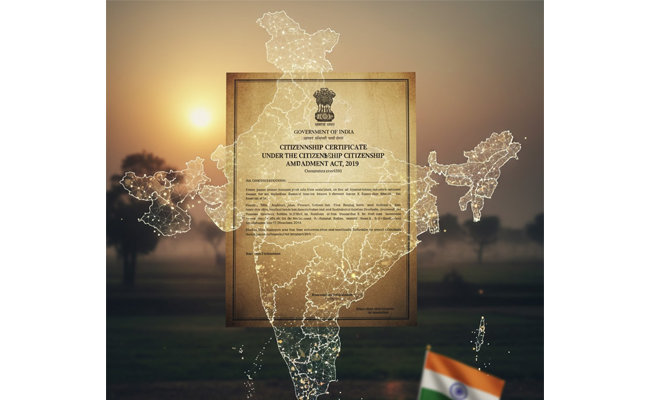Bagalkote (Karnataka) (PTI): Prime Minister Narendra Modi on Monday accused the Congress of planning religion-based reservation in the country for the sake of vote bank politics, but asserted that he will not let it happen.
He said this Congress proposal is to appease minorities as the SC/ST and OBC community is now with the BJP.
"In Karnataka, Congress has started a campaign to change the Constitution and to snatch away the rights of SC/ST and OBCs. Our Constitution does not accept religion-based reservation. But the Karnataka government has given part of OBC reservation to Muslims," Modi said.
Addressing a mega election rally in this district headquarters town, he said, "they (Congress) will not settle with this. They had earlier too in their manifesto said about coming out with a law to provide religion-based reservation. There is a similar signal in their manifesto this time."
"I want to make my Dalit, SC/ST and OBC brothers and sisters aware about Congress' intentions. These people on the basis of religion, to keep their vote bank safe, are planning to loot your right which was given by Babasaheb Ambedkar and the Constitution," he added.
Veteran BJP leader B S Yediyurappa, BJP candidates and MPs from Bagalkote (Bagalkot) and Vijayapura (Bijapur) -- P C Gaddigoudar and Ramesh Jigajinagi, respectively -- were among those present at the rally.
Noting that most of SC, ST and OBC MPs in the Parliament are from BJP, Modi said, "So they feel that as SC, ST and OBC are with BJP. To gain the trust of minorities, they want to loot from SC, ST and OBC and give it to minorities. Will you let this happen?"
"I want to guarantee today to my Dalit, Adivasi and OBC brothers and sisters. I will not let such intentions of Congress be successful. To protect your rights, your reservation, Modi will go to any extent. I'm assuring you this," he added.
Let the Truth be known. If you read VB and like VB, please be a VB Supporter and Help us deliver the Truth to one and all.
New Delhi (PTI): Three members of a family were found dead inside their home in southeast Delhi's Kalkaji on Friday, with police suspecting it to be a case of suicide, officials said.
Police said the incident came to light around 2.47 pm when a police team reached the premises to execute a court order related to possession of the property. When repeated knocks went unanswered, the staff used a duplicate key to open the door.
Inside, officers found Anuradha Kapoor (52) and her sons, Ashish Kapoor (32) and Chaitanya Kapoor (27), hanging from the ceiling, Deputy Commissioner of Police (Southeast) Hemant Tiwari said in a statement. All three were declared dead.
A handwritten note was recovered from the room, suggesting the family had been struggling with depression.
"The handwritten note indicates emotional distress faced by the family due to which the family may have taken the extreme step," the officer said.
The bodies have been shifted to the All India Institute of Medical Sciences (AIIMS) mortuary for post-mortem and other legal formalities under Section 194 of the Bharatiya Nagarik Suraksha Sanhita (BNSS), police said.
Residents of the neighbourhood said they were shocked to learn about the deaths, adding that the family kept largely to themselves.
Pankaj Kashyap, a resident of Girinagar, said he learnt about the deaths while leaving for work. "I live and work here and was leaving for work when I saw many people standing outside and talking. That is how I got to know that three people had committed suicide. I also saw several police vehicles outside, but I do not know much beyond that," he said.
Baldev, another neighbour, said the family had been living in the newly constructed house for around two years. "We only knew that a mother and her two children lived there. They had moved into the newly built house around two years ago. We did not interact much with them. Today we heard that all three have committed suicide, and whatever we know is based on what people here are saying," he said.
Another neighbour, Ramesh Kumar, claimed the family had earlier attempted suicide.
"About fifteen to twenty days ago, the two sons in the family had attempted suicide and police and ambulances had come. That was when I first got to know who they were. I do not recognise them by face, but we saw the ambulances and police take the two sons that day. Today again we saw ambulances and police arriving, so everyone came out to see what had happened. I do not know how long they had been living here, but this is all we know," he said.
Police said they are examining the family's financial condition, social circumstances, and other factors that may have contributed to the incident. Further investigation is underway.





